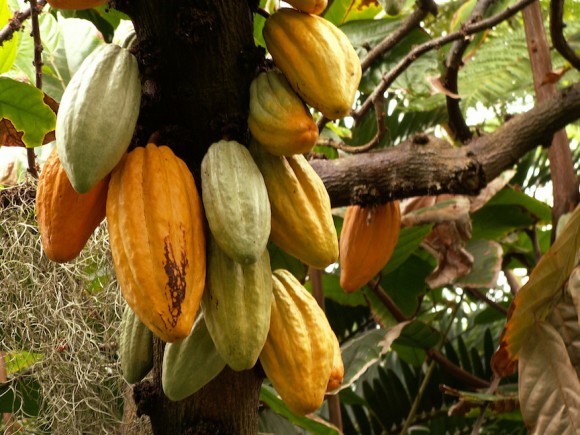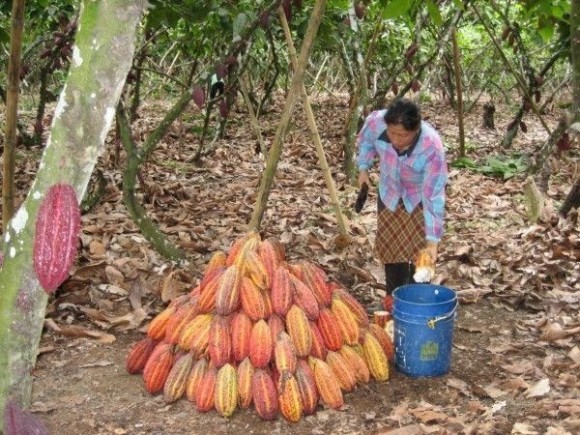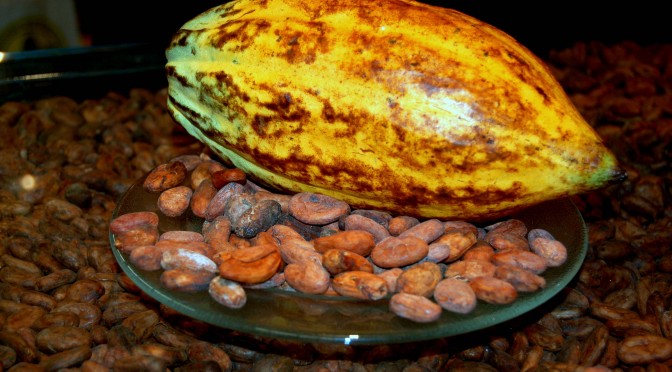This week, director of research communications Dave Pacchioli is in northern Colombia to observe and write about an ambitious new project led by Penn State scientists Mark Guiltinan and Siela Maximova. Mark and Siela have the sweet job of studying cacao, the plant that gives us chocolate.
As directors of Penn State’s endowed cocoa research program , which just celebrated its 30th anniversary, they helped decipher the entire genome sequence of the cacao plant and are working on ways to improve cacao plants and aspects of chocolate production. Last year they identified the gene in cacao that controls the melting point of cocoa butter, a trait that’s critical for that melt-in-your-mouth lusciousness we love about good chocolate.
Their new project, Cacao for Peace, is a US-AID-funded initiative, part of the USDA’s Land Grant University Consortium. Its goal is to provide poor farmers with an economically feasible alternative to growing coca, the plant from which cocaine is made. With an international shortage of chocolate looming, prices are at a record high that actually makes cacao competitive with coca as a cash crop.

Last week Mark and Siela participated in a “Cacao Boot Camp” where Peace Corps volunteers and others learned how to teach farmers the latest cocoa growing techniques. This week the newly-trained volunteers and their local counterparts are leading workshops for farmers at three sites on Colombia’s northern coast.
Sixteen years ago, Dave joined them on a research trip to Trinidad, so when the Colombia project came up, they invited him again, and this time, he’ll be joined by freelance videographer Mark Eaton. In Trinidad, Dave was able to post daily dispatches from the field. On the current trip, the group will be in an area with little or no cell phone coverage and not even a steady supply of electricity: Generators will be turned on for a couple of hours every evening to allow people to recharge their various devices. That’s it.
So we won’t have daily updates from Dave; we might not even get an email from him until he’s back in Bogota on Saturday, waiting for his flight home. But when he and Mark get back they’ll have plenty to share with us. Over the next couple of months, watch the PSU homepage and social media outlets for stories and short posts featuring highlights of the trip. Dave will also be writing a more in-depth story for the Spring 2017 issue of Research/Penn State magazine and other outlets. Stay tuned!


